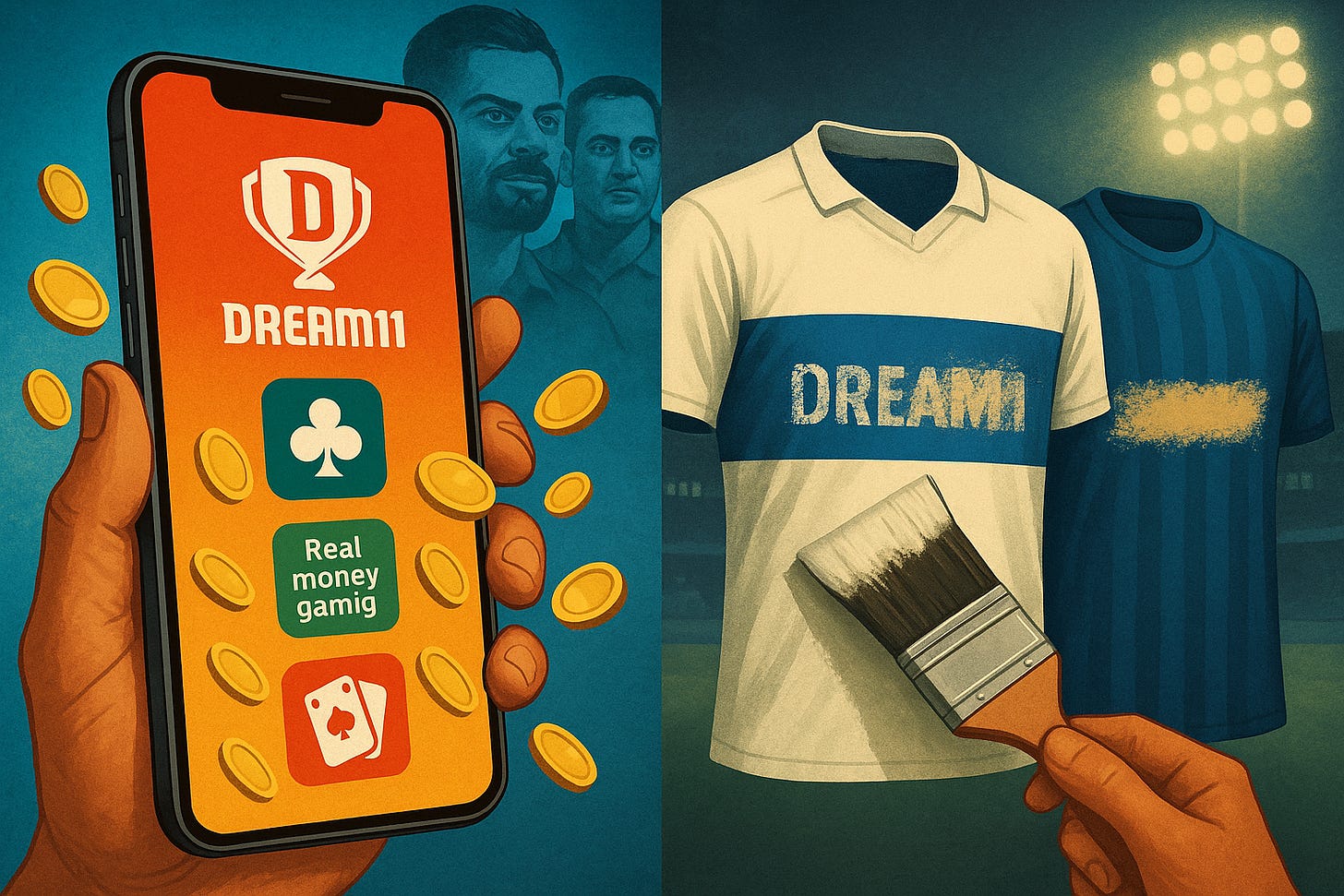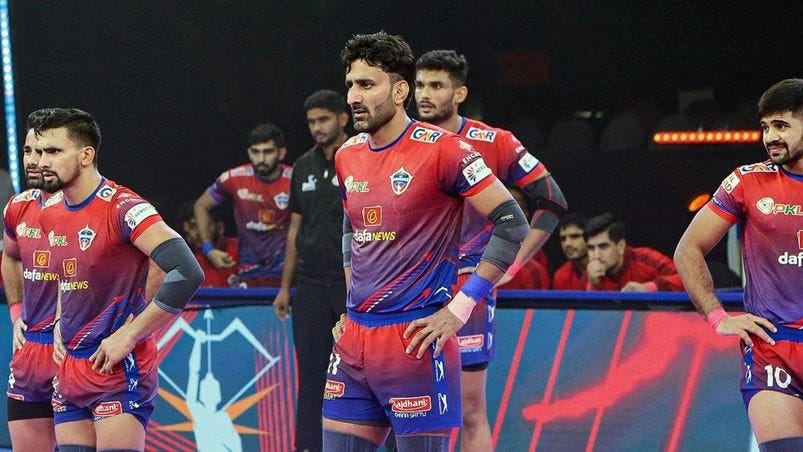Can Indian Sports Survive Without Betting Money?
Betting apps were the main sponsors for the popular league across sports in India for the past five years.
In the last five years, a silent but profound shift occurred on the smartphones of millions of Indians. A trickle of fantasy sports apps burst into a deluge of online betting platforms and real-money games, blurring the lines between skill, chance, and outright gambling. Concurrently, a decades-old marketing trick, surrogate advertising, found a powerful new ally in digital media. Together, they created a multi-billion rupee industry that operated in the grey areas of Indian law, powered by celebrity endorsements, and fundamentally reshaped the economics of Indian professional sports. Now, facing a regulatory reckoning, the entire ecosystem is poised for a dramatic transformation.
The explosion wasn't an accident; it was a confluence of perfect conditions. The Jio revolution of 2016 made data available at an affordable rate in India, and most Indians craved new avenues for entertainment. The Pandemic and the lockdown following that set an ideal platform for a boom in the digital media industry. All of a sudden, a million new YouTubers and Instagram influencers emerged. With people stuck at home, sports viewing skyrocketed. Betting apps offered a way to monetize fan knowledge, turning passive watching into an active, potentially lucrative engagement.
However, the existing rules of India were against involving money in a game that involves “chance” and not “skill”. Platforms like Dream11 have masterfully positioned their fantasy sports product as a game of skill, where knowledge of players and strategic thinking matter. This legal nuance allowed them to operate legally in most states, normalizing the act of putting money on sporting outcomes.
A critical driver was the business's fundamental economics. Unlike capital-intensive tech start-ups, developing a betting app did not require a massive investment. Many used cheap, white-label software solutions that could be rebranded overnight. Hence, the profit margin they had was astronomical. The model, based on a "platform fee" on every bet or a percentage of player losses, generated a relentless cash flow with negligible overhead per additional user. This also meant that the betting platform could spend millions on marketing, allowing them to outbid traditional companies for sponsorships and flood every advertising channel.
For outright illegal betting apps, operating required a cloak of invisibility. Banned international brands like 1xBet simply changed their names. Platforms like 1XBat and others with similar-sounding names proliferated, using mirror sites to bypass government bans.
Many sites masqueraded as sports news portals like Dafanews and Parimatch News. Users seeking "expert tips" were redirected to actual betting platforms, a clever disguise to attract traffic.
This normalization would have been impossible without celebrity might. MS Dhoni and Virat Kohli advocating for a "fantasy sports" app lent it immense credibility, transforming a speculative activity into a mainstream hobby. Actors added a layer of coolness and excitement, and the list included Shah Rukh, Aamir, Shahid Kapoor, Ranbir, and so many more. Thousands on Instagram and YouTube built channels on "betting tips," acting as a direct salesforce with affiliate links, often without disclosing the risks of addiction. Most of the internet users might have heard the line “....ek chhota sa gem khelakar ghar baithe paise kamaana seekhen” from Instagram influencers. Former cricketers like Aakash Chopra wore sports team jerseys with the Dafanews logo in multiple videos on his YouTube channel.
Alarmed by a rising tide of user addiction, financial fraud, and devastating personal ruin linked to these platforms, the Indian government has moved from caution to decisive action. The online gaming bill, which was recently passed by both houses of Parliament, will bring a full stop to the operations of the real money gaming apps. Also, promoting them is a punishable offence now.
This is where the story becomes a national dilemma. The low-cost, high-profit model meant these companies had unmatchable cash to spend on sponsorships. They became the financial lifeblood of Indian professional sports.
While the IPL attracts numerous traditional sponsors, the main sponsor of almost half of the teams is Dream11. The Indian national team’s jersey also shows the same logo in bold font.
For leagues like the Indian Super League and Pro Kabaddi, which are still building financial stability, a deal with a gaming app is often the single largest source of private revenue, crucial for covering player salaries and operations. Top teams like Mohun Bagan, FC Goa, Punjab FC, and Chennaiyin FC had these platforms as their main sponsor.
A ban doesn't just affect the apps; it threatens to create an immediate economic crisis for sports. The fallout could include a massive revenue shortfall for leagues and teams, reduced salaries for the club staff, cutbacks on youth academies, scouting, and operations, hurting long-term development.
The new laws won't make these apps disappear, but will force a painful maturation. Smaller, fly-by-night operators will shut down, unable to comply with KYC and tax norms. Leagues and teams are now forced to wean off this easy money and build a sustainable model, diversifying revenue through merchandise, non-endemic sponsors, and better broadcast deals. It’s a necessary step for ethical growth, but a difficult one.
The era of the Wild West is over. The Indian online gaming industry is being ushered into an age of accountability, a move that protects consumers but also fundamentally challenges the financial playground of modern Indian sports. The final bet is on whether the leagues can adapt and survive without their most lucrative and controversial benefactor.




